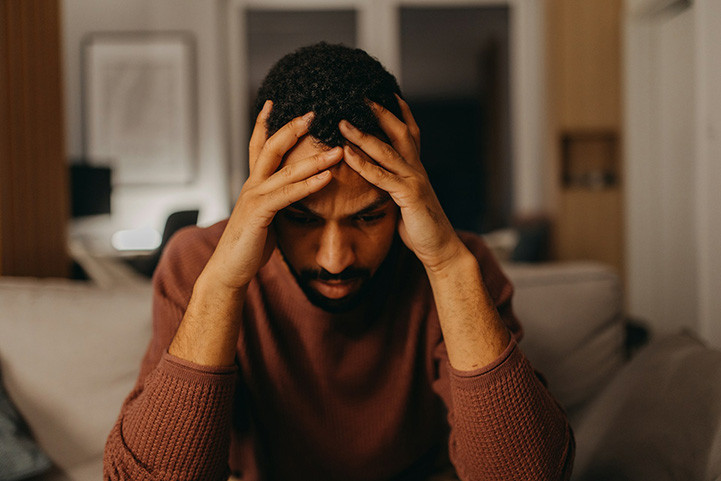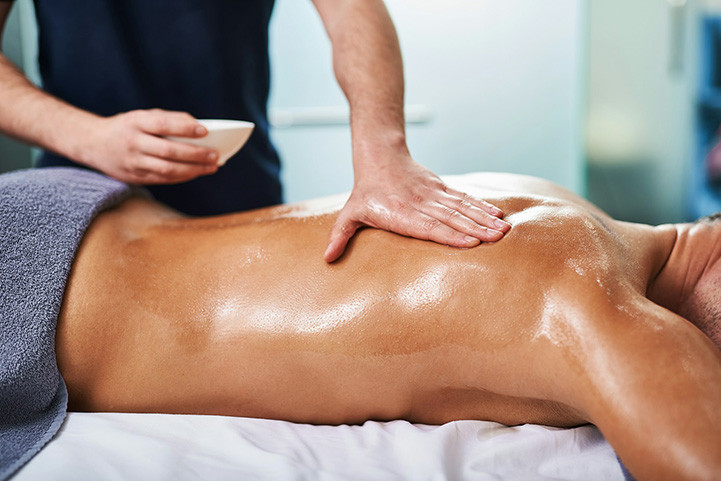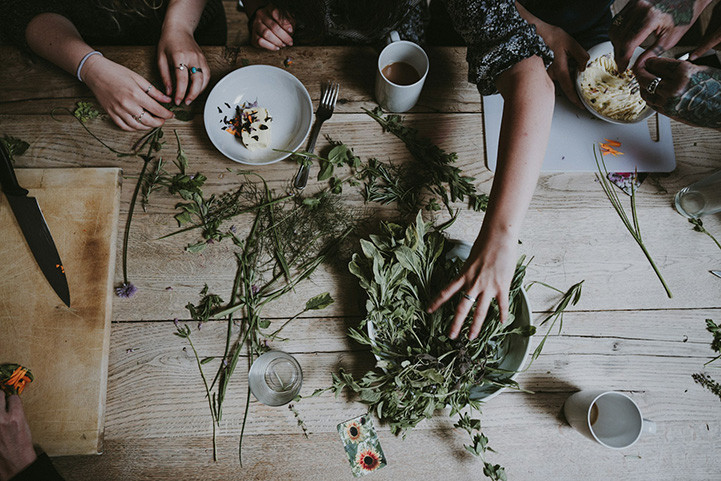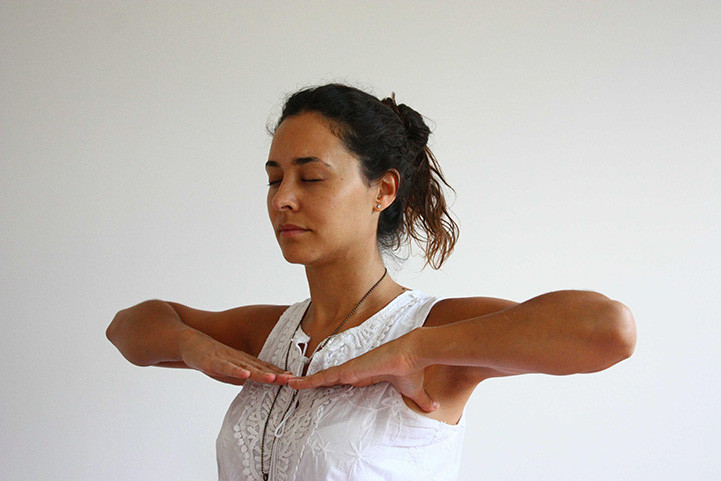
Natural disasters. Accidents. Ongoing childhood neglect or emotional abuse. Sexual assault. Witnessing a shooting. Trauma can come from many sources. Depending on our resilience quotient, we may overcome or struggle with trauma. Here’s where an ancient, scientific method, Ayurveda can help. First, let’s look at trauma. Then, we'll see how Ayurveda views trauma. Finally, we'll look at what Ayurveda suggests for managing trauma.
What is trauma?

Trauma is our response to an overwhelming, harmful, or life-threatening event that we experience or witness. A survivor of sexual assault or a gun violence victim typically has some trauma. Their case manager or EMT could also get vicarious trauma. Trauma can also be transgenerational, like in a Holocaust survivor’s family.
Trauma can impact our mental, physical, social, and spiritual well-being. The immediate response may be shock or denial. There can be longer-term symptoms. These include withdrawal, hyperarousal, anxiety, nightmares, a fight-flight-freeze response, and physical health issues. But an expression of trauma can also be delayed for years and even decades. Trauma can cause severe mental health disorders like PTSD (post-traumatic stress disorder), adjustment disorder, and ASD (acute stress disorder).
Many people who face trauma do not develop lasting symptoms and mental health issues. About 70% of US adults go through a traumatic event in their lives and 6% develop PTSD. Women are twice as likely to develop PTSD and up to 20% of veterans are diagnosed with it. Minorities are vulnerable but may lack access to equitable healthcare. Traditional talk therapy and psychotropic medication can be supportive. However, studies show that they have limitations. Many prefer not to talk about their trauma. Only up to 50% improve with therapy and dropout rates are high (almost 40% for veterans). There is a critical need for alternative and complementary approaches.
Ayurveda and how it views trauma

Ayurveda is a 5,000+ year-old traditional medicine in India. It is also an alternative healing practice in the US. It focuses on the connection between the mind, body, and spirit. Ayurveda provides personalized, natural, and holistic care. Prevention and disease management are done through lifestyle, formulations, and therapies.
Ayurveda believes that everything is made up of five elements: ether, air, fire, water, and earth. These elements combine to form three energy principles, or Vata, Pitta, and Kapha Doshas (read more here). A unique combination of doshas during conception forms our constitution. Our structure, function, affinities, tendencies, and disease propensities depend on this constitution.
How we feel and live day to day is influenced by our doshas and Gunas—qualities called Sattva, Rajas, and Tamas. Sattva is our natural, light, clear, healthy, joyful state. Rajas is ambitious and fiery, while Tamas is dull and inert. We've all had times when we’ve felt uplifted, feverish, or like couch potatoes! Our mind keeps fluctuating! An imbalance in doshas and gunas causes diseases and other life challenges.
Diseases can have internal or external causes. In Ayurveda, trauma is called an “Agantuja Manovikar”. It is where external events impact mental health. Short-term imbalances are inevitable. But the impact can last longer. This depends on the nature of the trauma, and the individual’s resilience and state of health.
Trauma aggravates all doshas starting with Vata. Then the mind switches between the energy principles, Rajas and Tamas. These cause anger, irritability, and depression. This leads to reduced vitality (Ojas) and immunity is reduced. The mind and various organ systems continue to go out of balance.
In Ayurveda, we understand trauma to reside at cellular levels with the body ‘keeping score’. Because of imbalanced energy principles' impacting tissues (Dhatus). This dynamic can lead to cascading mental, physical, and chronic illnesses.
Trauma management in Ayurveda

Case story:
Eight-year-old Sam had a few life-threatening anaphylactic reactions and many ER visits. He was anxious and had what he called ‘flashbacks and nightmares’. His family took him to an Ayurvedic Practitioner (called a Vaidya). The Vaidya gave him formulations and followed a gentle approach, providing a safe and nurturing space. The Vaidya never brought up the specifics of Sam’s trauma unless Sam opened up. Sam’s treatment also included cognitive behavior therapy and attending the SKY Breath Meditation course for kids. Sam used Ayurvedic formulations, CBT, and regular SKY practice. They helped him gain resilience and face future trauma without flashbacks and nightmares.
Ayurveda handles cases of trauma like Sam's in a holistic way. It starts by caring for the mind. Ayurvedic mental healthcare includes three treatments:
- Therapeutic interventions with formulations, therapies, and alterations in diet and lifestyle
- Subtle management through volunteering and faith-based interventions
- Counseling and enhancing Sattva energy through practices like meditation and breathwork
Ayurveda has two specific approaches to addressing trauma:
1. Building resilience through preventive healthcare
Ayurveda relies on the science of epigenetics, the study of behaviors and environment. Improving diet, lifestyle, digestion, and stress management can make people healthier and more resilient. These changes can also alter gene expression and can even have a transgenerational impact. Many people experience trauma but not everyone develops a disorder.
Ayurveda can help build resilience. It does this through preventive care and boosting positive Sattva energy, which can contribute to preventing the long-term adverse impacts of trauma. Here are some of the ways to build resilience.
- Practice yoga, breathwork, and meditation
- Eat nutritious food that is light, fresh, and easy to digest
- Favor fresh fruits and vegetables, whole grains, protein, dairy (if you can tolerate it)
- Drink enough water
- Go to bed at least 1-2 hours before midnight and get enough sleep
- Regular exercise
- Follow a routine that aligns with natural, daily routines, and seasonal rhythms
2. Management after a traumatic event
If a traumatic event has already occurred, an Ayurvedic practitioner does a holistic and comprehensive assessment just like they would for any client. Trauma can worsen the digestive, nervous, and other systems. Ayurveda focuses on fixing them. It addresses all health issues that could arise. These include anxiety, sleep disturbances, chronic pain, somatization, and substance use. Some considerations are:
- Early intervention and family and community support
- Comprehensive integrative trauma-informed care that includes mental, physical, spiritual, and social health
- Empowering tools with simple changes in diet and lifestyle
- These include meditation, reflection, journaling, self-massages, and following a routine. They also include exercise, yoga, and eating nourishing, grounding foods.
- There are multiple studies on how yoga and meditation provide relief in symptoms of PTSD and chronic pain.
- Personalized care
- Formulations called “Medhya Rasayanas” or brain tonics may be given. These include Ashwagandha, Guduchi, Yashtimadhu, and Brahmi. Always consult an Ayurvedic Practitioner before taking any herbs or formulations.
- Therapies like Abhyanga (massage), Nasya (nasal administration of therapeutic oils), Shirodhara (pouring warm, therapeutic oils on the forehead) and a full Panchakarma are very helpful.
Breathwork and meditation programs

Ayurveda recommends meditation for building resilience and managing trauma. The Art of Living's SKY Breath Meditation (Sudarshan Kriya) is an evidence-based technique. Studies have shown it enhances positivity, reduces stress, and helps manage trauma. A flagship program, Project Welcome Home Troops offers a Resilience Training Program to veterans, those in service, and their immediate families above 18 for free. Art of Living’s sister organization, the International Association for Human Values (IAHV) also provides trauma relief workshops in areas of natural and man-made disasters worldwide.
SKY is taught to the general public in the Art of Living Part 1 course. Register here.
Related articles
Breathing New Life Into The School Community - After A School Shooting
Disclaimer: This content on the Art of Living Blog is not intended to be a substitute for professional medical advice, diagnosis or treatment. Always seek the advice of your physician or other qualified health providers with any questions you may have regarding a medical condition. Any links to third-party websites are provided as a convenience only and the Art of Living Blog is not responsible for their content.






























